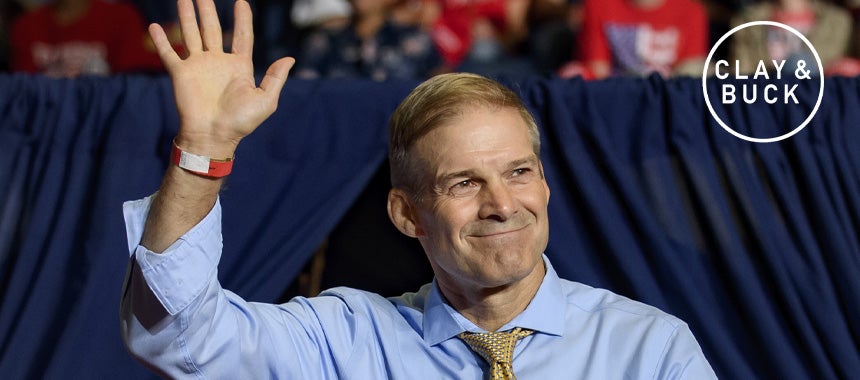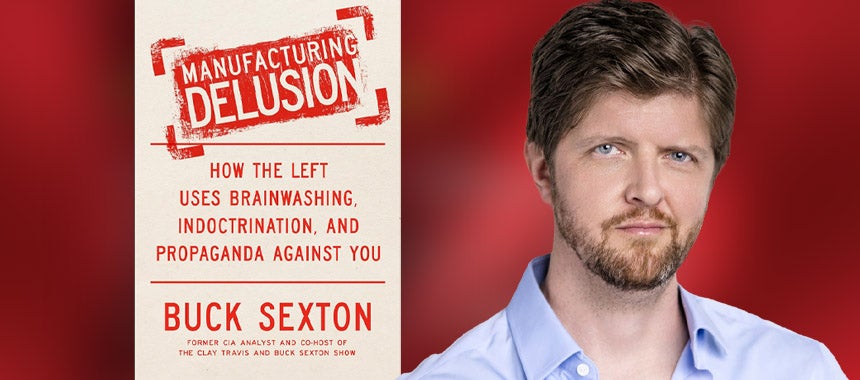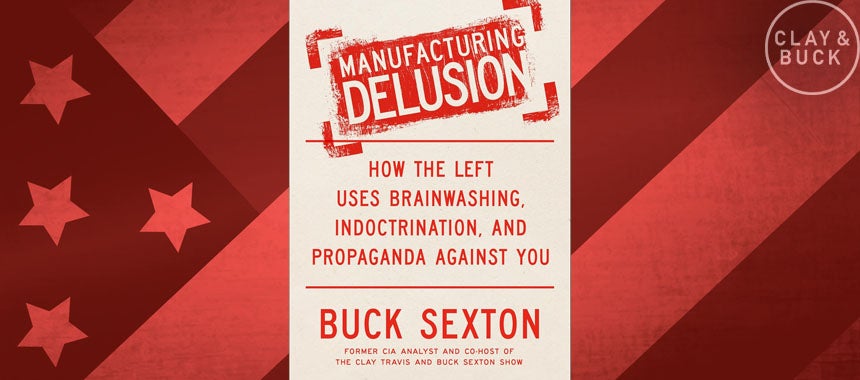Dr. Makary Brings Us the Truth on Monkeypox and Covid
23 May 2022
BUCK: President Biden talking about monkeypox, which is getting a lot of media attention right now.
Biden on monkeypox fears: “Thus far there doesn’t seem to be a need for any kind of extra effort … I just don’t think it rises to the level of a kind of concern that existed with COVID-19. And the smallpox vaccine works for it. But I think people should be careful.” pic.twitter.com/3nB6FMqGFC
— The Recount (@therecount) May 23, 2022
BIDEN: Is this something you need to be concerned about or is this overblown at this stage? We’ve got that and a whole lot of other health issues to discuss with our friend Dr. Marty Makary. He’s the author of The Price We Pay: What Broke American Health Care and How to Fix It. Dr. Makary, great to have you on.
DR. MAKARY: Good to be with you.
BUCK: Let’s start with the monkeypox situation. They show these blisters and you’re seeing a lot of media cover of this. There’s some relation to smallpox and so people are really freaked out. I asked a doctor friend of mine over the weekend, and he said basically not something you really have to worry about very much. What’s the reality here?
DR. MAKARY: I would agree with that. Monkeypox does not have the ability to cause a pandemic for a couple reasons. It requires a lot of direct contact. A lot. We’re talking about maybe with sores or a rash at the time of the direct contact, maybe blood or fluid exposure, maybe large respiratory droplets in a very close space interaction for a long period of time.
You know, there’s a reason why they’ve noticed an outbreak clustered among a subgroup of gay individuals. They believe that it may be transmitted possibly among a number of different routes through men having sexual intimacy with other men. U.K. is actually advising people about that and they’re urging anyone in that community to be aware of rashes. CDC is also issuing a similar advisory right now.
CLAY: Dr. Makary, appreciate you coming on. I want to hit you with this, ’cause I’m getting this question a lot. Right now — and I’m looking at the New York Times’ database on covid — the top 10 states to have covid-related issues, the highest level are Rhode Island, Connecticut, Hawaii, Massachusetts, Delaware, New Jersey, Vermont, New York, New Hampshire, Illinois, Maine, and Michigan. That might be more than 10, but that’s all the ones right at the top.
Those are all states with incredibly high rates of covid vaccination — in fact, far higher than the average in the nation as a whole. What are we seeing? How is this possible based on what the CDC has told us that we would have the highest rates of covid right now in the states that have the highest rate of covid shots, a/k/a vaccinations. Is this just a geographic quirk in your mind, or is there something else at play?
DR. MAKARY: Well, there’s definitely seasonality to the virus, and maybe that’s why it’s been spreading quicker in the north. But the CDC and the NIH painted themselves into a corner by saying that the vaccine would reduce or stop transmission. The message should be clear, that the vaccine in people who are at risk downgrades the severity of illness.
And we still really have not heard that message; they’re chasing these covid zero policies, and with regard to studying it — because generally there’s not been a lot of scientific evaluation of the largest public health intervention in modern history — we got a paper in our top medical journal in the last few days that looks at Cornell University.
Very interesting study from Cornell. Mandatory masking, mandatory student vaccination, required PCR tests once/wk, isolation and contact tracing within hours of positive test result.
Mask mandates failed (go figure) and 98.6% of cases were breakthroughs.https://t.co/YBcu8PIyNM
— Jeremy Redfern (@JeremyRedfernFL) May 21, 2022
CLAY: Yes.
DR. MAKARY: They did basically everything, tested people twice a week, set up a fortress masking, canceled activities. And over the entire duration of those covid zero policies, no difference in overall outcomes. That should say a lot.
BUCK: Dr. Makary, we also wanted to ask you about the realities of how effective the vaccine, even for those at risk, is. And now it feels like the conversation gets very — has to be very nuanced and in the weeds, because there’s the issue of how effective it is right after the shots, how effective it is a few months after the shot. We saw just last week we talked about this data showing that even those who were fully vaccinated during the Omicron surge…
I think it was either January or February. Something like 40 to 50% of those who were dying from covid were fully vaccinated, which I think was a surprise to me when I saw that statistic. Do we have some sense as to how effective and for how long, for those at high risk, the vaccines are, based on the actual data as it stands now almost in June of 2022?
DR. MAKARY: It’s amazing. We still don’t really have a good handle on this because the compass is broken. The data is flawed. We don’t know deaths from covid or incidentally with covid. We don’t know hospitalizations for or with covid, incidental, when people are in the hospital for another reason. So that’s why you’re hearing a lot of debate without really a good resolution to it.
Here’s what I would tell people is that if you’re at risk, what happens when you get the infection — natural infection or you get the primary vaccine series — your B- and T-cells activate and that’s probably a lifelong activation, and that will downgrade the severity and help some — a lot of people — who otherwise might have had a life-threatening infection.
CLAY: Doctor, what I’m curious about too — and there’s so much here, and we appreciate you giving us some time. Right before we came on with you, we reported that kids are gonna be required to wear masks again in schools in Philadelphia. And there’s obviously a great deal of concern about that requirement spreading now as covid cases are up. There’s also still a lot of talk about young kids getting covid shots and whether or not it make sense. Kids in masks and young kids getting covid shots, what would you want all the parents out there to know about these issues?
DR. MAKARY: Well, first of all, the issue of masks has been thoroughly studied in schools but people are just ignoring that data. It was very clearly done in an elegant study from Finland, and Tracy Hoeg did a similar study in the United States. This is not the riddle of the Sphinx. (chuckles) This is something that we have done in the United States to roughly half the kids in this country, and we can see what the outcome was.
 The outcome was a giant mental health catastrophe, but now everybody is scratching their head to figure out, “How do we fix this?” Well, we’re trying to mop up the floor while the spigot is still on, and if you look in New York State, in New York City — where many so-called experts are urging the city to go back to universal indoor masking — they’re actually using monkeypox as one of the rationales to do it.
The outcome was a giant mental health catastrophe, but now everybody is scratching their head to figure out, “How do we fix this?” Well, we’re trying to mop up the floor while the spigot is still on, and if you look in New York State, in New York City — where many so-called experts are urging the city to go back to universal indoor masking — they’re actually using monkeypox as one of the rationales to do it.
If you look at the deliberations right now, we don’t have an open scientific forum anymore. That’s gone. When the CDC just authorized, just recommended strongly boosters for 5- to 11-year-olds in the United States, they ignore the fact that 75% have natural immunity. There was no clinical data they used and cited. Instead, they pointed to a study of 140 kids, 5 through 11, who got the booster.
And they said, “Oh, look, the antibody levels went up a little bit,” which we know is transient. So they recommended boosters for 24 million kids, 5 through 11, universally based on 140 kids in a study that didn’t even look at outcomes and the efficacy was indeterminate from that study? And if you listened to the proceedings of the CDC in their committee meeting last week, they said — many of the members said — it was to have a simplicity in the messaging; otherwise people would be confused. And I think the public is just sick of this paternalism. They want honesty, and they just want the scientific facts straight.
BUCK: Is the medical community turning a bit more toward the direction of reality now, Doc? I mean, we have you on; there are a handful of folks with impeccable credentials like you who will speak about this in this way. But I’m still — amazed isn’t the word — appalled at how many Dr. So-and-So who works for the public health department in New York or Philadelphia or Chicago or L.A. or wherever is acting like we haven’t gone through the last two years of seeing all of their ideas fail.
DR. MAKARY: Well, I get a lot of doctors privately and secretly reach out to me and say, “Keep talking about this. I agree a hundred percent. I can’t say anything because of my boss or my institution or my communications department,” and so there’s a lot of that pressure. And the currency of academic medicine is NIH funding. So when many people are worried about their funding stream, of course you can imagine why they’re a little timid to speak up.
BUCK: Dr. Marty Makary, everybody. The Price We Pay is his book. He’s at Johns Hopkins University. Doc, appreciate it. Thanks for diagnosing the problem.
DR. MAKARY: Thanks so much, guys.
Recent Stories

Buck Discusses Manufacturing Delusion with Megyn Kelly
Buck's interview with Megyn Kelly is out. Watch it here.

Jim Jordan: The Choice in November is Normal vs. Crazy
Rep. Jordan points out that 30% of America falls under illegal sanctuary policies.









